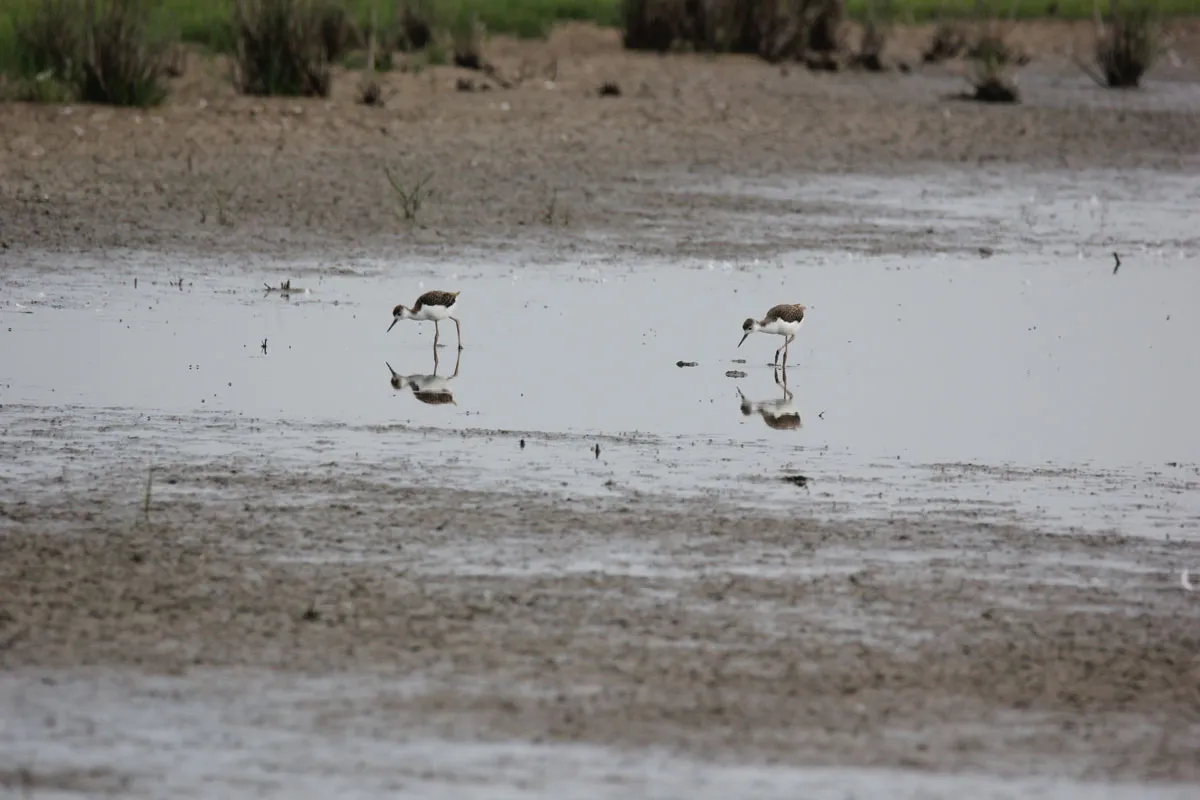Usually found in southern Europe, 13 black-winged stilt chicks have been spotted fledging in sites in Kent, Cambridgeshire and Norfolk this year, including nine on two RSPB reserves as they have benefitted from work to create the ideal marshy habitat.
According to conservationists, climate change has increased the number of stilts coming to the UK in search of marshy conditions to raise their chicks.
An elegant, black and white wader bird with long, bubble-gum pink legs, black-winged stilts have become a more common sight in recent years as they move from their traditional nesting grounds in southern Europe in search of wetland habitat to raise their young.

Fledglings are still extremely rare in the UK with only a handful of successes in the past decade. In the Mediterranean, stilts prefer to nest in shallow lagoons and salt pans, and when visiting the UK it is usual for them to visit a number of potential nesting sites before settling down to make their home.
RSPB Cliffe Pools in north Kent proved to be the most productive site for black-winged stilts this summer as two pairs fledged an impressive seven chicks. A further two young fledged from RSPB Ouse Washes in Cambridgeshire, with a final four coming from a nest in Norfolk making it the most successful breeding season for stilts in the UK.
Malcolm Ausden, RSPB Principal Ecologist, said: “With the changing climate we’re anticipating that more southern European bird species – such as black-winged stilts - may arrive in the UK to nest. We’re planning for their arrival by providing the ideal habitat and conditions for them on our nature reserves, especially wetlands, to ensure they are able to nest and raise their chicks. Hopefully, this year marks a change in fortunes for black-winged stilts in the UK – with more fledglings this year than from all previous nesting attempts between 1983 and 2016 – in part down to the habitat on RSPB reserves.”
Last week it was revealed that cattle egrets had successfully bred for only the second year in the UK at RSPB Ham Wall, while earlier on in the summer a pair of spoonbills nested at RSPB Fairburn Ings – a first for Yorkshire.
Main image: Stilts at Ouse Wash (c) Jonathan Taylor
